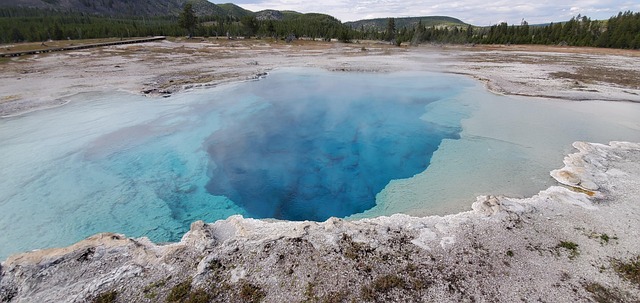Chest congestion caused by colds, allergies, or sinus infections can be alleviated by warm baths, which offer numerous benefits of heat for respiratory issues. Heat thins mucus, soothes inflamed tissues, relaxes muscles, and increases blood flow, expediting recovery. A warm bath at 38-40°C (100-104°F) for 15-20 minutes combines with essential oils like eucalyptus or peppermint to provide significant relief from congestion and respiratory difficulties.
Warm baths offer a simple yet powerful solution for alleviating chest congestion, a common symptom affecting respiratory health. Understanding the impact of congestion on daily life is the first step. Heat plays a crucial role in relaxing muscles and thinning mucus, providing relief. This article explores the scientific evidence behind warm baths and their benefits for respiratory issues, guiding you to create an effective, soothing experience. Discover how this ancient remedy can be a modern game-changer for chest congestion.
Understanding Chest Congestion and Its Impact on Respiratory Health
Chest congestion is a common condition that occurs when mucus builds up in the airways, leading to difficulty breathing and potential respiratory discomfort. This can be caused by various factors, including colds, allergies, sinus infections, or even chronic lung conditions. When congestion affects the chest area, it can significantly impact respiratory health, making each breath a challenging task. The body’s natural response is to produce more mucus as a defense mechanism, but this can exacerbate the problem, creating a vicious cycle.
Warm baths offer a simple yet effective remedy for chest congestion. The benefits of heat for respiratory issues are well-documented. Warm or hot water helps thin out mucus, making it easier to expel from the lungs and airways. Additionally, heat has a soothing effect on inflamed respiratory tissues, providing much-needed relief. Taking warm baths can be a relaxing way to alleviate congestion, improve breathing, and potentially speed up recovery time, especially when combined with other therapeutic practices.
The Role of Heat in Relieving Chest Congestion
Heat plays a crucial role in alleviating chest congestion, making warm baths an effective home remedy for respiratory issues. When you immerse yourself in warm water, it helps to loosen and break down mucus buildup in the airways, allowing for easier clearance from your lungs. The warmth also has a calming effect on the body’s natural response to congestion by relaxing muscles around the chest and throat regions.
This simple yet powerful technique can significantly reduce symptoms of colds, flu, or other upper respiratory conditions. By increasing blood flow to the skin, heat promotes improved circulation, which in turn supports the body’s natural defense mechanisms against infection and inflammation. So, taking a warm bath not only provides comfort but also offers beneficial effects for your respiratory health by soothing congestion and promoting easier breathing.
Scientific Evidence Behind Warm Baths and Respiratory Benefits
Warm baths have long been a go-to remedy for chest congestion and respiratory discomfort, and science is now backing up what many have experienced anecdotally. The benefits of heat for respiratory issues are well documented. Research suggests that warm water can help loosen and expel mucus buildup in the airways, reducing congestion and making breathing easier. Heat also promotes vasodilation, which increases blood flow to affected areas, potentially reducing inflammation and soothing irritated tissues.
Several studies have explored the therapeutic effects of hydrotherapy (therapies using water) for respiratory conditions. For instance, a 2018 review in Therapeutic Advances in Respiratory Disease found that warm-water baths significantly improved symptoms of upper and lower respiratory tract infections. Another study published in The Journal of Alternative and Complementary Medicine highlighted the positive impact of sauna bathing on reducing symptoms of chronic obstructive pulmonary disease (COPD), further emphasizing the potential benefits of heat exposure for respiratory health.
Creating the Perfect Warm Bath for Efficient Congestion Relief
Creating the perfect warm bath can significantly enhance the relief of chest congestion, especially when breathing becomes challenging due to respiratory issues. The key lies in achieving the right temperature—warm, not scalding hot. A warm bath, ideally around 38-40°C (100-104°F), helps loosen mucus and soothe irritated airways. This is because heat has proven benefits for respiratory health; it relaxes muscles, reduces inflammation, and makes breathing easier.
To maximize the experience, add some essential oils known for their expectorant properties, such as eucalyptus or peppermint. These can further aid in clearing congestion by opening up nasal passages and soothing coughing fits. Additionally, ensure your bathwater is comfortable and stay in it for 15-20 minutes to allow your body to absorb the heat’s beneficial effects.
Warm baths offer a simple yet effective remedy for chest congestion, providing much-needed relief from respiratory discomfort. By immersing oneself in warm water, the body’s natural healing processes are enhanced, allowing for the elimination of mucus and soothing irritated airways. This age-old practice deserves recognition as a valuable tool to support respiratory health, especially during cold seasons when viral infections thrive. Embracing the benefits of heat for respiratory issues can be a game-changer in managing congestion and promoting overall well-being.
